Weather:
- Ha Noi 26oC
- Da Nang 26oC
- Ho Chi Minh 25oC
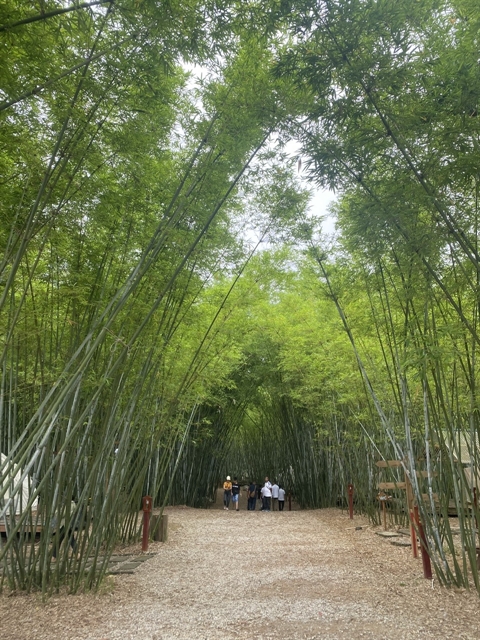
BẮC GIANG — The northern province of Bắc Giang will organise promotion programmes to stimulate demand and accelerate the digital transformation to boost the local tourism industry this year.
According to People's Committee Vice President Mai Sơn, Bắc Giang is making efforts to fulfil its targets of welcoming up to three million domestic and foreign tourists in 2025, creating jobs for about 6,000 workers in the tourism sector.
The provincial Department of Culture, Sports and Tourism will work on developing a synchronous smart tourism ecosystem and applying artificial intelligence (AI), virtual travel assistants and virtual reality (VR) technology to digitise Bắc Giang's images of its many attractions, beautiful landscapes and welcoming people.
The initiative is expected to increase the value of the tourism sector by promoting the province's attractive destinations and providing excellent services in terms of experience and convenience for tourists.
At the same time, digitalisation will facilitate the storage and use of searchable information about the cultural heritage of the province.
Among the area's relics and landmarks, priority is given to the Tây Yên Tử spiritual and ecological tourism area; community tourism areas and UNESCO cultural heritage sites. The latter include the Vĩnh Nghiêm Pagoda woodblocks, which have been labelled a World Memory Documentary Heritage in the Asia-Pacific region; quan họ (love duet) folk songs, which are listed as a representative intangible cultural heritage of humanity; ca trù (ceremonial singing); the Mother Goddess Worship religious practice; and the practice of then singing from the Tày, Nùng and Thai peoples.
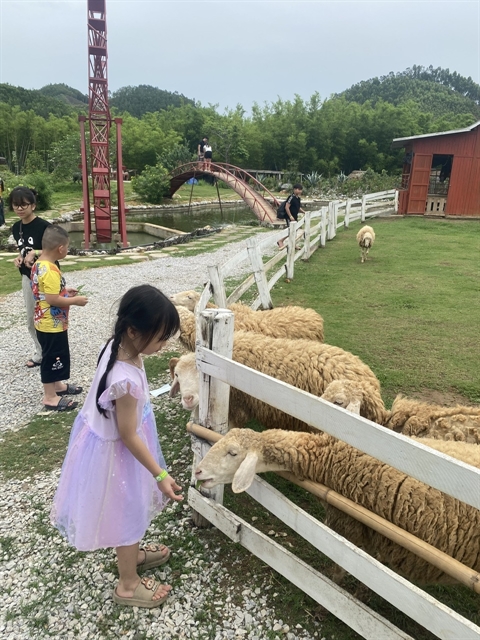
National Special Relics such as Vĩnh Nghiêm Pagoda, Bổ Đà Pagoda, Yên Thế Uprising Historical Site, Xương Giang Victory Site, Hiệp Hòa Zone II Safety Site, Tiên Lục Communal House, and multiple temple and pagoda complexes are also prioritised in the digital transformation process.
Others listed landmarks are national intangible cultural heritage sites and national treasures.
This year, Bắc Giang will promote the application of VR360 technology in the management and preservation of cultural heritage and the promotion of tourism.
The 3D scanning technology, 360 video and VR technology will be used to digitise cultural heritage, landscapes and scenic spots in the province to preserve and promote the values of historical and cultural relics.
The application will help diversify tourism experiences for tourists, promoting smart tourism in the province. It will also create a database on architecture, landscape, cultural heritage and typical ecosystems in tourist areas and destinations in the province.
Bắc Giang has also invested in building and effectively exploiting information technology applications (in the province's Smart City Project) and a number of social networking sites for tourism promotion, including management software, a smart portal and a website along with YouTube, Facebook and Zalo pages focusing on Bắc Giang tourism.
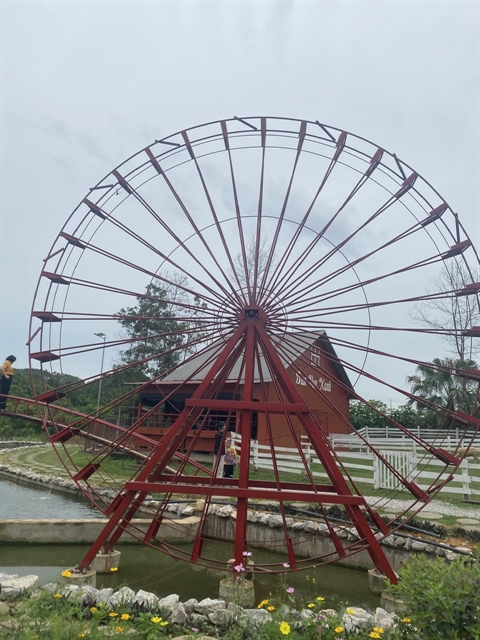
In addition, the province has built 10 relic sites that have applied a VR360-degree application integrated into the smart tourism portal and has effectively exploited the Google Maps application and SMS services.
QR codes with basic information about local attractions are available at tourist locations, dining establishments, accommodations and public transport. All activities are to promote tourism and facilitate information lookup for visitors.
Recently, Bắc Giang has enhanced the application of information technology in tourism promotion and business. It has deployed the Bắc Giang Digital Tourism Information Portal to provide information about historical and cultural relics, famous landscapes, hotels, restaurants and cuisine for tourists in Vietnamese.
At the same time, it has also promoted the Băc Giang tourism application for mobile devices.

Tourists using smartphones can access the application and easily search for tourism information and specific addresses or directions. They will receive support in planning suitable travel itineraries, save time and costs in choosing tourism products and services as well as gain better travel experiences.
Bắc Giang has gradually completed its information technology infrastructure and accelerated the digital transformation in tourism, aiming to form a smart tourism ecosystem.
The Bắc Giang Department of Culture, Sports and Tourism continues to maintain and use software to manage a database of cultural heritage and artefacts at the provincial museum and operate the Smart Tourism Portal, the Smart Tourism System and 3D/360 technology applications in information and tourism promotion.
A publication entitled Discover and Experience Bắc Giang Tourism has been digitised. A specialised page for the cultural tourism village has been established, while some modules to facilitate the use of the VR360 application have been added and upgraded to help advertise tourism activities.
Many provincial hotels and travel companies have applied information technology to production and business activities, such as deploying applications for hiring workers and room reservation management, among other uses.
Other firms have built websites introducing the companies, providing product information and promoting tour sales and online bookings, which help them save time and expenses.
Some businesses have chosen to promote themselves through social networks like Facebook or YouTube. This is a simple but extremely effective channel with a wide influence, helping businesses to both introduce and promote their works, and receive quick feedback from tourists.
In early 2025, Bắc Giang successfully organised the 2025 Culture - Tourism Week and sent officials to join the Việt Nam National Commission for UNESCO delegation in France to nominate the Yên Tử - Vĩnh Nghiêm - Côn Sơn-Kiếp Bạc Monuments and Landscape Complex as a World Heritage Site.
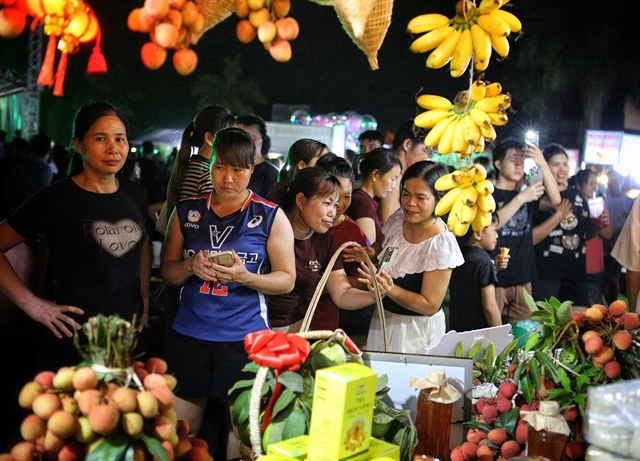
In 2024, the total number of tourists to Bắc Giang was about 2.7 million; total revenue from tourism business activities reached about VNĐ2.2 trillion (about US$84 million).
Destinations that welcomed many visitors included the Tây Yên Tử Spiritual - Ecological Tourism Area; Hoàng Hoa Thám Historical Relic Site; Vĩnh Nghiêm and Bồ Đà pagodas; Suối Mỡ Ecological Tourism Area; and Thổ Hà Ancient Village.
Nguyễn Quyết Tâm, an expert in digital transformation for tourism, said to help Bắc Giang businesses transform digitally, improve their business efficiency and enhance competitiveness, authorities should build professional tourism products and multi-level booking channels, develop a network of partners and suppliers along with sustainable tourism brands, and expand connections throughout the tourism industry.
He added that Bắc Giang needs to increase its tourism promotion on digital platforms and improve the quality of digital tourism resources.
Organising training courses, seminars and experience exchanging programmes on technology applications in management, marketing and tourism product development will also be necessary. These activities would help local tourism-related workers improve their capacity to use digital tourism platforms, travel company management software and online marketing tools.
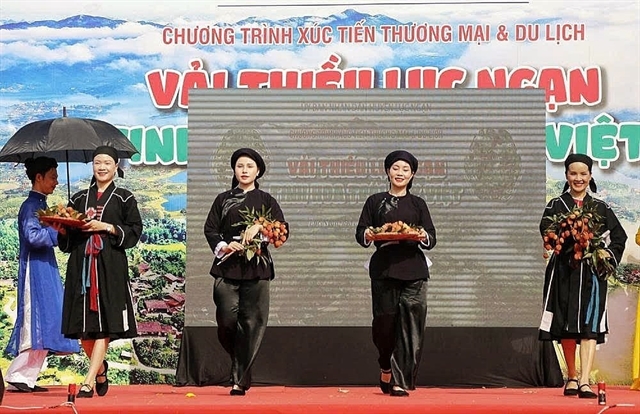
Deputy Director of the Bắc Giang Province's Culture and Tourism Promotion Centre Thân Văn Hiếu said with the application of VR360-degree technology, the centre has established 16 tourist areas, attractions and relics corresponding to 16 different VR tours. This is considered a breakthrough in innovation and creativity in promoting the local tourism industry.
Deputy Director of the Department of Culture, Sports and Tourism Đỗ Tuấn Khoa said that later this year, the department plans to invite representatives of the management boards of nearly 20 tourist areas to a conference to discuss solutions and strategies for promoting tourism.
Each administrative unit must build unique attractions to promote their destinations widely, creating an impression on tourists. QR codes with virtual explanatory videos for tourist destinations, craft villages, relics, and other attractions should be well maintained and developed.
All units are asked to increase the number of experiences for visitors through virtual and online tourism. At the same time, they should organise training courses to improve knowledge about the digital transformation for staff and employees. VNS


